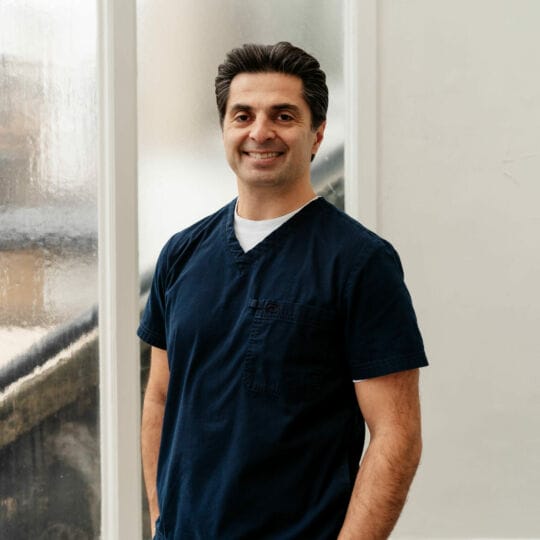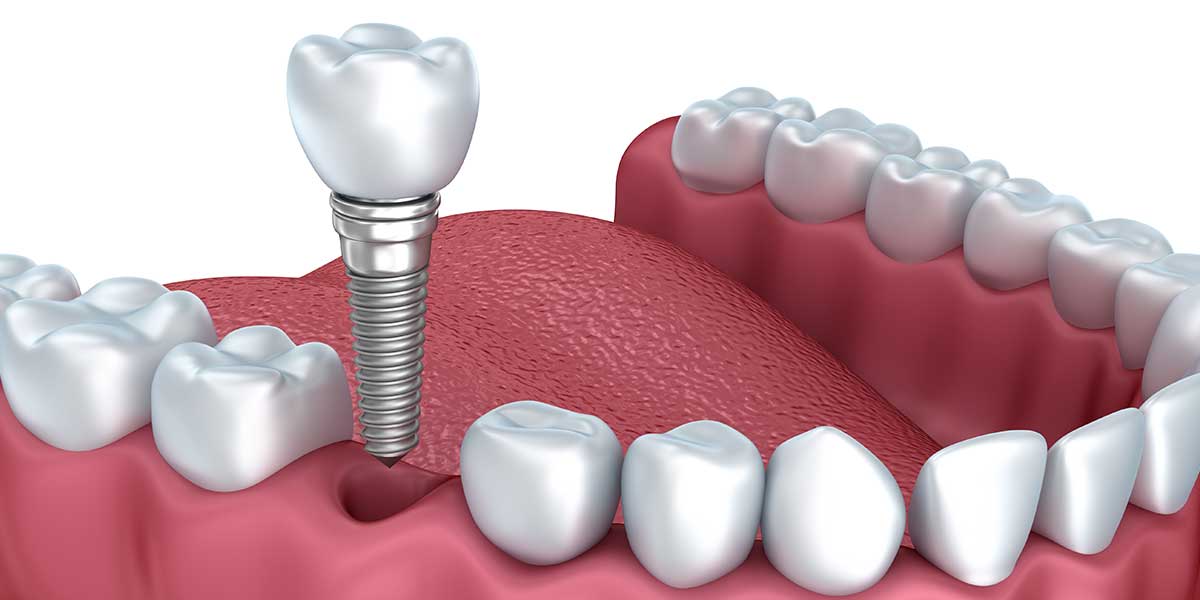If you have suffered tooth loss due to decay, gum disease, trauma or old age, dental implants could be the answer to restoring your self-esteem.
Dental implants are the closest replacement to natural teeth and are barely distinguishable from your own teeth. Not only do they provide a life-like, natural teeth appearance, they are a long-term solution and provide the same functionality as your natural teeth. Dental implants can replace a single missing tooth, multiple missing teeth and secure loose dentures in place.
Dental Implants FAQs
What are the methods of replacing teeth?
- Dentures
- Dental implants
- Conventional bridges
- Minimal intervention bridges
The above methods all have a range of advantages and disadvantages and your dentist will explain the best option suited for your needs.
What are dental implants?
Dental implants are a predictable yet effect way of replacing teeth. Dental implants do not rely on neighbouring teeth, they’re not prone to decay and are a good long term prognosis.
As with any man made mechanical device, there are also complications that can occur with implants. It’s a misconception that implants will last forever. They do require regular maintenance in order to provide longevity of the implant.

What would cause my implant to fail?
Just like your natural teeth, they rely on good oral health and the same applies for the health and longevity of a dental implant. Dental implants are cared for just like your natural teeth. They are a fantastic way of replacing teeth but they do require regular maintenance and this should be accepted as part and parcel of having an implant restoration.
Common complications of dental implants are screw loosening, breakages of the porcelain that covers the crown, and cases of infection and inflammation around the neck of the implant which is referred to as periodontitis. Regular dental check ups are required in order to preserve your dental implant and to deter any issues from developing.
How long can treatment take?
Typically the replacement of teeth with dental implants will take around 3 to 4 months but this can be prolonged if other procedures such as bone regeneration or gum regeneration are required.
What are minimal intervention bridges?
Minimal intervention bridges, also known as adhesive or maryland bridges are a non-invasive way of replacing missing teeth. They are most predictable around the front teeth and host a very good track record for reliability. The main advantage is that they do not require any preparation of the adjacent tooth, they can simply be glued on and can last for many years.
There is however a possibility that they may fall off, but the bridge can be glued back on easily and efficiently causing no harm to the supporting tooth.
What are conventional bridges?
Conventional bridges are the traditional way of replacing the missing teeth in a non removable fashion. They are strongly fitted into place and provide good aesthetics however, they do require the preparation of the adjacent teeth which can potentially put them at risk of decay and nerve damage.
What are dentures?
Dentures can be used to replace the function and appearance of your natural teeth, particularly if you’re missing several or a full arch of teeth. Our dentures are durable and long-lasting, and will provide a full, natural looking smile that you will be proud of. If you would prefer a removable option to restore missing teeth, then this could be the best method for you.
Our three methods:
- Chrome or Acrylic Partial Dentures
Partial dentures replace one or more teeth and can still be used if you have some of your own natural teeth. A partial denture can be attached by a metal clasp or by strategic positioning against the existing teeth.
- Chrome or Acrylic Full Dentures
Complete dentures replace a full arch of missing teeth on either the upper or lower jaw. They are custom made to fit the precise measurements of your mouth, allowing a comfortable but secure fit of the denture.
- On All 4 Implant Dentures
Implant retained dentures are a more permanent approach to restoring missing teeth. To fit the dentures into place, we secure these to 4 implants that are positioned on either the upper or lower arch. You may prefer this option than opting for a removable denture as it allows the denture to fit securely against the gums, they provide a natural looking smile and are generally more comfortable to bite and chew with.
All denture methods must be well maintained and treated as if they were your natural teeth. This means you must commit to regular cleaning to avoid the build up of plaque and tartar, which can further develop into gum disease. For those with removable dentures, we recommend cleaning them with water with a soft brush and leave them overnight in a dental cleaning solution as advised by your dentist. You should also brush your gums and tongue with a soft brush and rinse with mouthwash.




